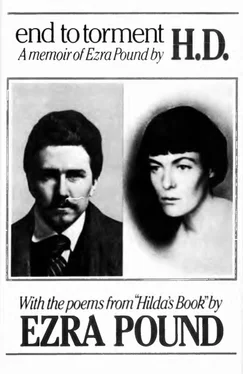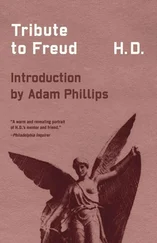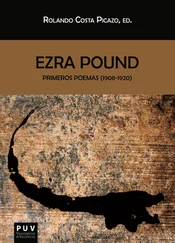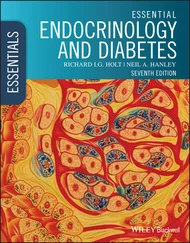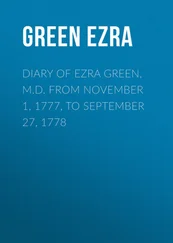Hilda Doolittle
End to Torment: A Memoir of Ezra Pound
This book has been twenty years in the making, and in its brief compass recounts a friendship, a romance, and a collaboration in poetry reaching back to the beginning of the century. Ezra Pound and Hilda Doolittle began the century together, in Pennsylvania, and though their European odysseys carried them in separate directions, throughout the years they maintained their friendship. Their final correspondence recalls their earliest days together; H.D.’s last letters to Pound are signed “Dryad,” the name he had given her when they were young. H.D.’s daughter, Perdita Schaffner, has written of that time:
They were young together, young poets together, innovators, close friends. It was he who suggested she use her initials as a byline. She felt that her own name invited puns and facetious jokes. H.D. it was, she was, from then on. They considered marriage. Their betrothal was tentative and unofficial, strongly opposed by her family, and eventually broken off … 1
The story of the professional collaboration of the two young poets has been told many times: how Pound contrived the school of “imagiste” poetry at least partly to describe the specific qualities of H.D.’s early poems and to help get those poems into print. Later, as she records in this memoir, the continuing influence of Pound’s Cantos helped her find a form for her own long poems, Trilogy and Helen in Egypt . And one of her last poems, “Winter Love,” written shortly after End to Torment , transfigures their early love into a mythical relation between Helen and Odysseus. Characteristically, H.D. apprehended a symbolic or universal pattern underlying her own experience and attempted in her writing to give that pattern expression.
End to Torment , although an intensely personal memoir, shows some of the same techniques and habits of mind. She had written of the artist Undine to Norman Holmes Pearson, as she was composing the memoir: “I want to work this out as it touches (very distantly) my own shock at Ezra leaving for Europe—1908?” 2And she connects Pound’s political isolation and imprisonment, after World War II, with the reaction of the staid Philadelphia community to his return from Indiana, where he had resigned his position as an instructor at Wabash College after a minor scandal. Hilda was loyal to Ezra then, although when she asked him about the malicious rumors, he responded with his characteristic gifts of defiance and self-dramatization: “They say that I am bi sexual and given to unnatural lust.”
At the time of writing End to Torment (1958), H.D. found herself, once again, nearly alone among her companions in her defense of her fellow poet. Her friends Bryher and Sylvia Beach understandably resented Pound’s wartime activities and sympathies and discouraged her from engaging in apologetics. She herself had no wish to add to the unhealthy publicity surrounding Pound, “on top of the journalists.” 3But while there was no haste for publication, her longtime friend and literary adviser Norman Holmes Pearson encouraged her to record her recollections at this crucial time, when the continuing efforts to arrange Pound’s release from federal custody seemed finally near success. The good news came even while the manuscript was in progress, in a letter from Pearson: “And now another canyon has been bridged by Ezra’s end to torment.”
Another ally in the struggle to remember was H.D.’s doctor, Erich Heydt, whom she met at the Klinik Dr. Brunner in Kusnacht, Switzerland. His role in the recollections is well documented in the memoir itself. Most importantly, H.D. herself felt the need to recall and express memories that would otherwise be lost forever. She wrote to Pearson:
[Your letter] has given me back the early American scene, when almost everyone I knew in Philadelphia was against him, after that Wabash college debacle . Erich always said I was “hiding something.” It was all that , my deep love for Ezra, complicated by family (& friends') lack of sympathy — my inner schism — outwardly, I went on, after E. (1908) went to Venice. I have been writing of this & Erich has been helping me … I did have a life in U.S.…
I have E.P. books piled on my table. I had to try to hide them—& talk of everything but what most deeply concerned me. … I have been so happy writing the E.P . “story”—it must not be taken away from me … poor, poor Ezra. Only now, with the hope of his release, dare I go back & on. “It is so long ago,” I say to Erich. “No,” he says, “it is existentialist,” (his word) “eternal.” 4
The “existential” quality of End to Torment is emphasized by its journal form, which mingles memories with the circumstances of recollection, allowing H.D. to catch resonances which connect past and present. She remembers how the young Ezra reminded her of Paderewski, whom she had heard in concert as a girl; and a red-haired child glimpsed in a railway station, or a young pianist (Van Cliburn) on a tour of Europe, becomes the “spirit-child” that she and Ezra might have had. The form is similar to that used in her Tribute to Freud (New York, 1956; revised edition, Boston, 1974), a journal-essay on her psychoanalysis and her own mythic approach to psychic mysteries. End to Torment can be read as a personal sequel to Tribute to Freud , and ironically its methods contrast sharply with the resolutely impersonal, intellectual attitudes of Pound. H.D. refers deferentially and comically to a letter from Pound in which he decries her interest in the “pig sty” of Freudian psychology.
Throughout the memoir runs H.D.’s conviction that her life and Ezra’s had been intertwined irrevocably since those early days when they walked together, “maenad and bassarid,” in the Pennsylvania woods, and he wrote for her poems imitating William Morris, Rossetti, and Swinburne, even Chaucer. (Twenty-five of those poems, handbound in vellum by Pound and titled “Hilda’s Book,” are first published here as an epilogue to her memoir of their first love.) Pound goaded her own ambition to write poetry, and his mock-Bohemian manner, his bad luck in his attempt to become a respectable professor, and his romantic departure for Europe under a cloud of disgrace seemed to fulfill the plangent historical novels they had read together. In a few years she followed him, for a summer visit that became a lifetime. “I was separated from my friends, my family, even from America, by Ezra.” Paradoxically, the recounting of Pound’s own confinement in St. Elizabeth’s and the imminence of his eventual release turn her thoughts homeward and tie her to America still: “I feel so violently American, in the pro-Ezra sense, though it has gone so badly with him.”
As she was writing the journal that became End to Torment , her friends kept her supplied with news from America and reports on visits to the “Ezuversity,” as Pound called his circle at St. Elizabeth’s Hospital. Erich had stopped there on a cross-country tour; Richard Aldington, her former husband, sent an article from The Nation (“Weekend with Ezra Pound”) which treated Pound with some sympathetic understanding. She ran across another piece in the German periodical Merkur and read the correspondence in Poetry that defended Pound against political slander. The signs seemed to indicate that the atmosphere had changed enough, since the war, so that Pound could soon be set free. Her final entry quotes a letter from Pearson, recounting his farewell visit with the Pounds in a cabin on the Cristoforo Colombo , soon bound for Italy.
Читать дальше
